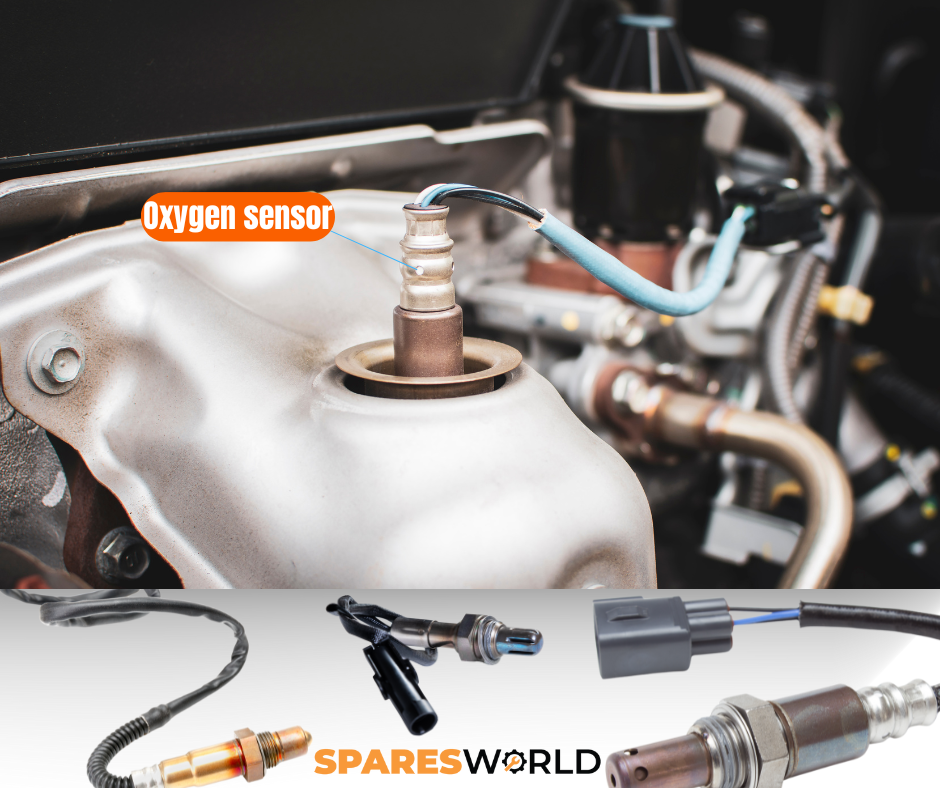How a Failing Oxygen Sensor Can Affect Your Car’s Efficiency: The Hidden Impact on Fuel Economy and Emissions

Ever wondered what keeps your car running smoothly and efficiently? One key player often overlooked is the oxygen sensor. This small but mighty component ensures that your car’s engine maintains the perfect balance of air and fuel for optimal performance. However, when it starts to fail, the consequences can be much bigger than you'd think—affecting your car’s fuel economy, emissions, and overall engine health.
Let’s explore the critical role of the oxygen sensor, how it influences your car’s efficiency, and why addressing a faulty sensor could save you from headaches down the road.
What Does the Oxygen Sensor Do?
The oxygen sensor, often referred to as the O2 sensor, is responsible for monitoring the amount of oxygen in your car’s exhaust gases. This sensor plays a critical role in the engine's computer system (ECU), which uses the information it gathers to adjust the air-fuel ratio. A balanced air-fuel mixture ensures your engine runs efficiently, burns fuel properly, and produces fewer harmful emissions.
Most modern cars have multiple oxygen sensors—one before the catalytic converter and another after it—to monitor the system’s performance in real-time.
The Impact of a Failing Oxygen Sensor
When the oxygen sensor begins to fail, your car’s ECU receives incorrect data, leading to improper adjustments in the air-fuel mixture. This can trigger a series of problems that affect both your wallet and the environment:
-
Reduced Fuel Economy: A failing oxygen sensor can cause the engine to run too "rich" (too much fuel) or too "lean" (too little fuel). Either scenario leads to poor fuel efficiency, meaning you’ll be filling up at the pump more often than necessary.
-
Increased Emissions: When the air-fuel ratio is off, your car produces higher levels of harmful emissions. This can cause you to fail an emissions test, contributing to environmental pollution and potentially costing you in fines or repair mandates.
-
Engine Performance Issues: A faulty oxygen sensor can trigger engine misfires, hesitation, or rough idling. Over time, running with a bad air-fuel mixture can lead to more serious damage, such as premature wear on spark plugs or the catalytic converter.
-
Check Engine Light: A failing oxygen sensor will usually trigger the check engine light, indicating something's wrong with the emissions system. Ignoring this warning can allow the issue to worsen, leading to more extensive (and expensive) repairs.
Signs Your Oxygen Sensor Is Failing
Catching the problem early is key to preventing more significant issues. Here are some telltale signs that your oxygen sensor may need attention:
-
Check Engine Light: One of the most obvious indicators. If the light comes on, it's wise to run a diagnostic scan to determine if the oxygen sensor is at fault.
-
Poor Gas Mileage: If you’re making more frequent stops at the gas station without changing your driving habits, a faulty oxygen sensor could be causing poor fuel economy.
-
Rough Idling or Engine Misfires: When the air-fuel mixture is off, your engine might run rough or misfire, particularly at idle.
-
Increased Exhaust Emissions: Excessive black smoke or a noticeable sulfur smell coming from your exhaust can indicate that the sensor isn’t functioning correctly.
Preventing Further Damage
Ignoring a faulty oxygen sensor isn’t just bad for fuel economy; it can also damage other critical components of your car’s engine, like the catalytic converter, which is far more expensive to replace.
Here’s how you can prevent further issues:
-
Routine Maintenance: Regularly servicing your car and checking for any O2 sensor-related codes can help catch issues early.
-
Timely Replacement: Oxygen sensors typically last between 60,000 to 90,000 miles. If you’ve reached this mileage or are experiencing any symptoms, it’s time to replace them.
-
Fuel Additives: Using fuel additives can help clean the engine and sensors, prolonging the life of your oxygen sensor and other components.
Stay Efficient with Sparesworld
At Sparesworld, we’ve got you covered with high-quality oxygen sensors that will keep your car running at peak efficiency. Whether you're looking for parts, advice, or professional assistance, our team is here to help ensure your vehicle stays fuel-efficient and eco-friendly. Don’t wait until your fuel economy tanks—get your oxygen sensor checked and replaced with Sparesworld’s trusted solutions!

 Loading..
Loading..